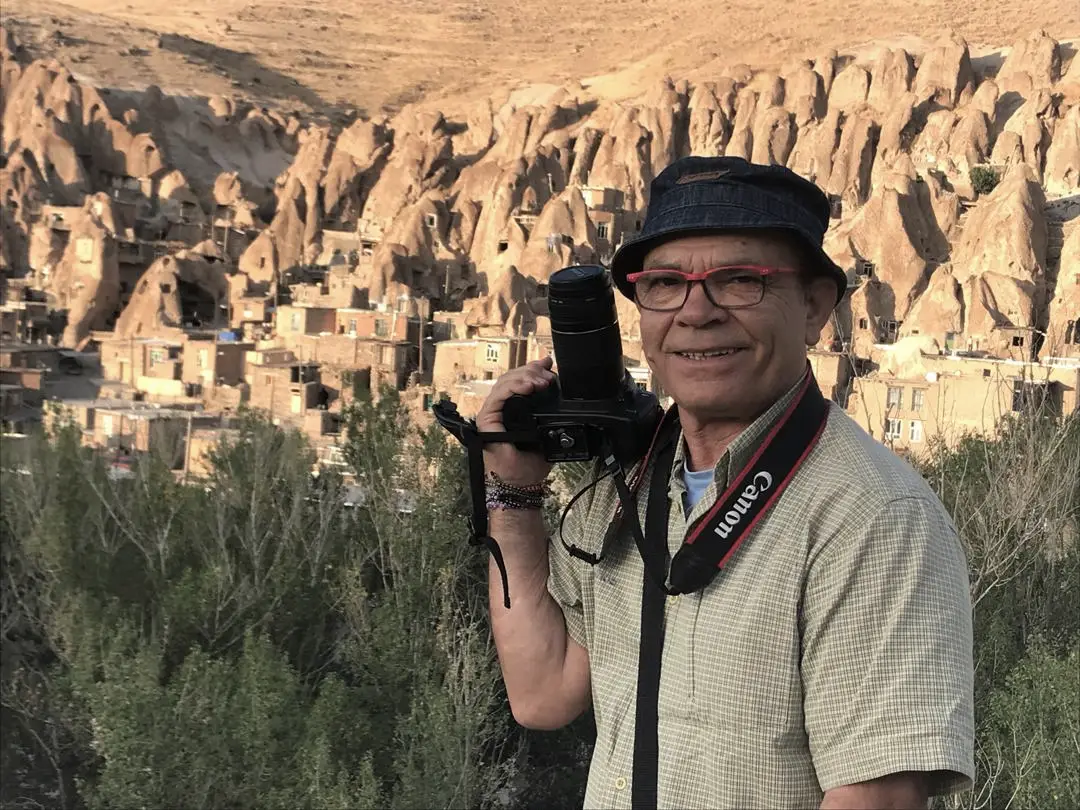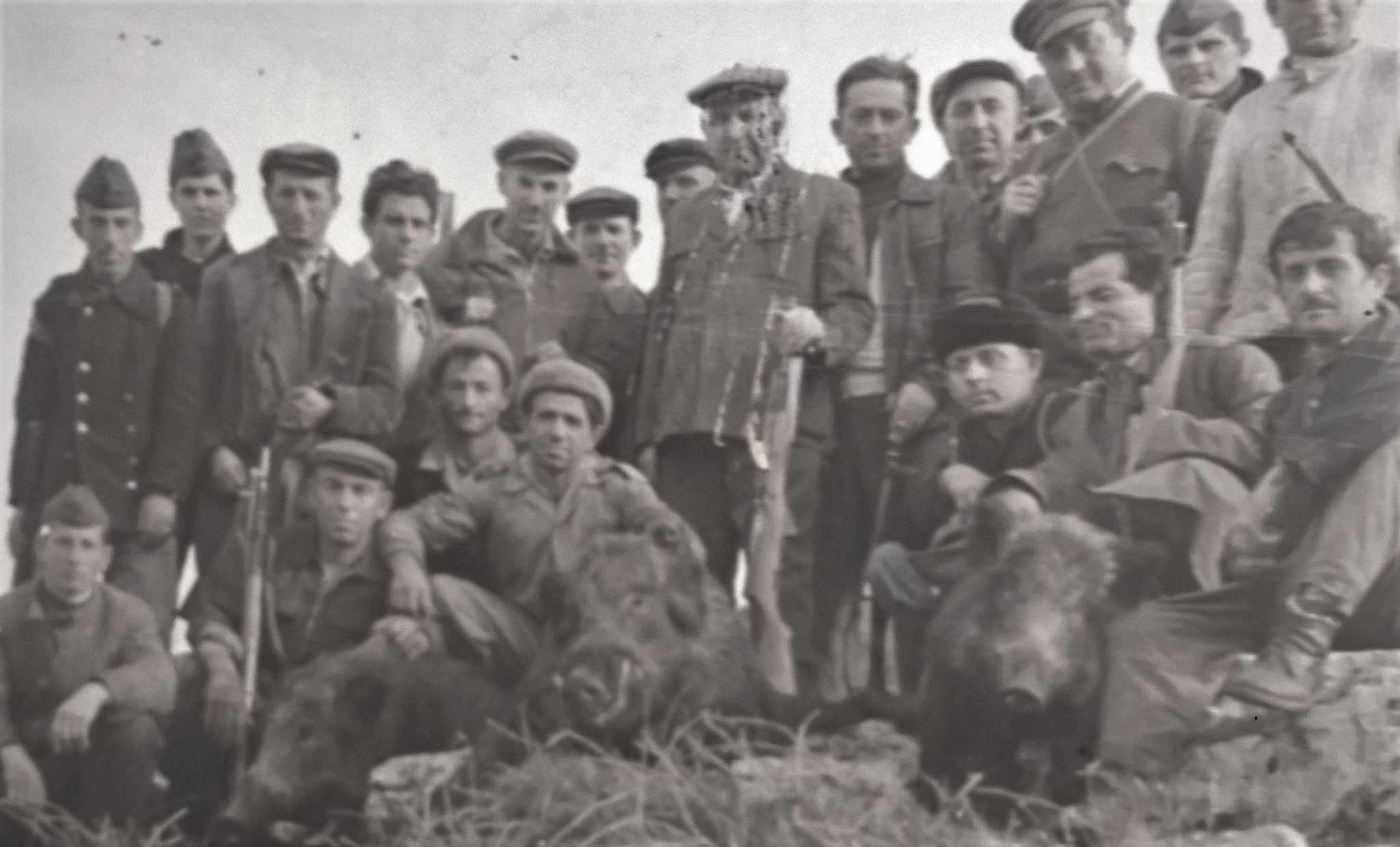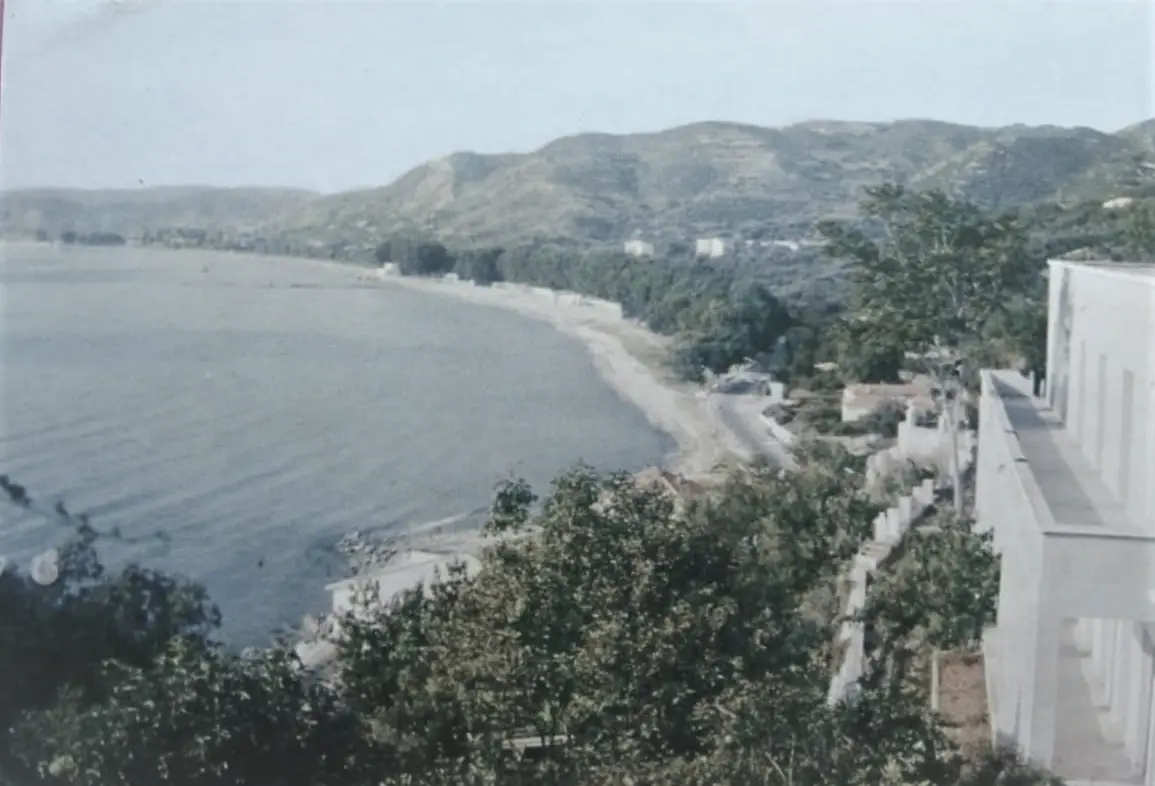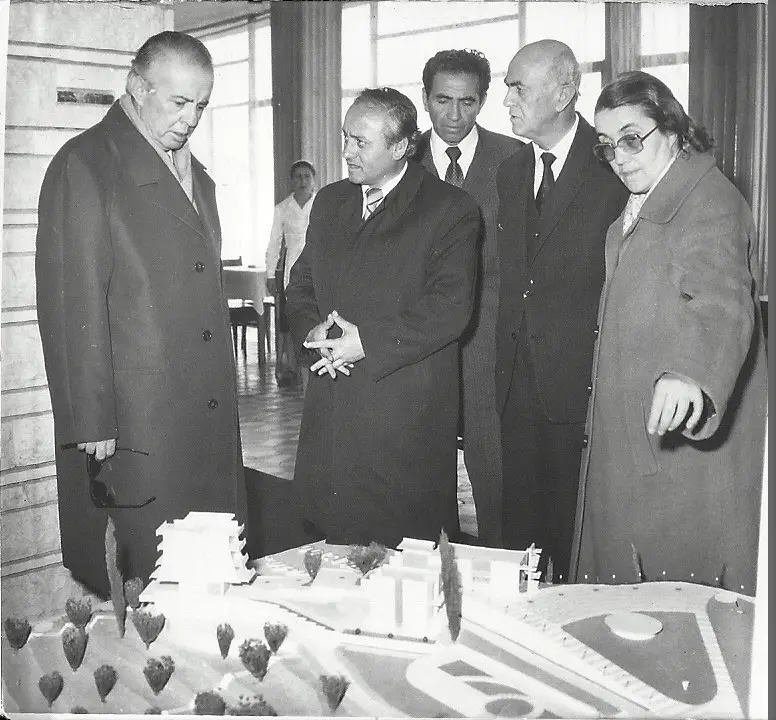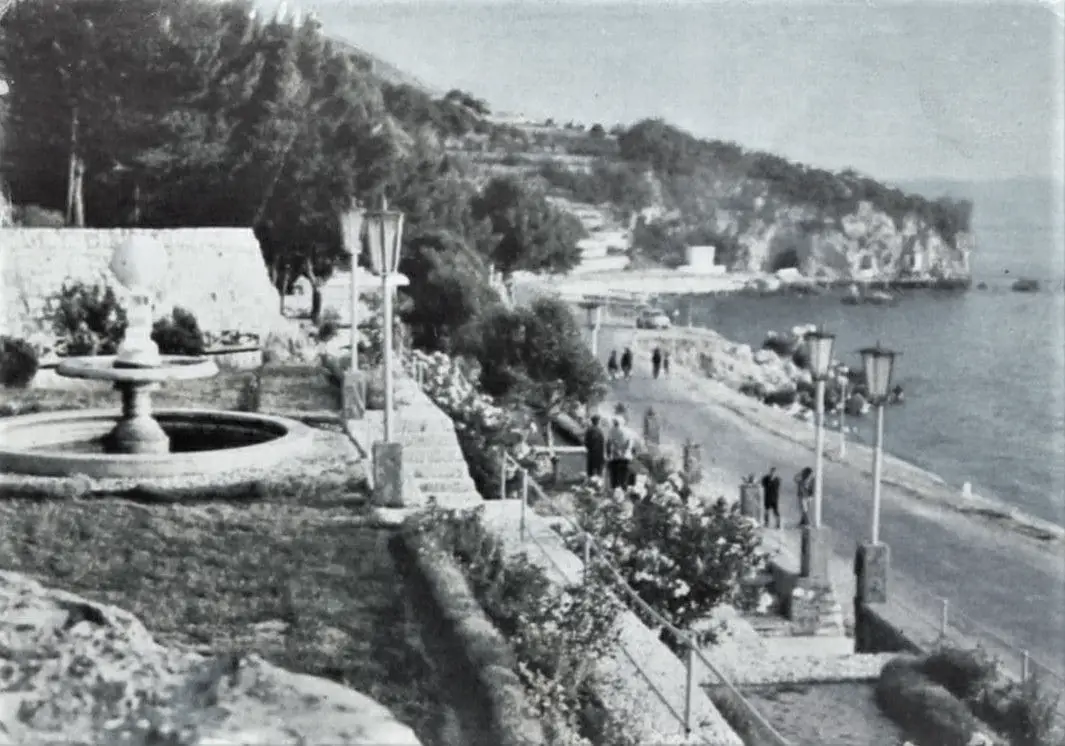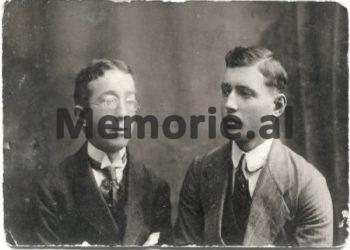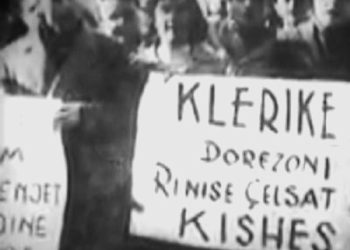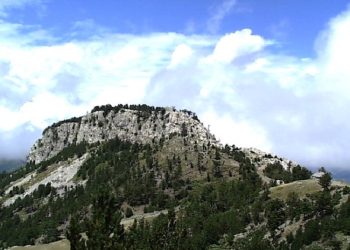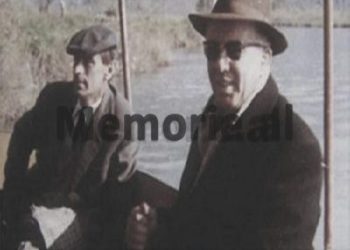By Vasil Qesari
The fifth part
Memorie.al/ The overthrow of the great totalitarian edifice in Albania would leave behind, not only the change of the system, accompanied by a lot of hopes, mirages and cries of happiness, but, unfortunately, also a lot of wounds, drama, victims, dust, milk and so on lies of all kinds. Ten years and more after that event, which deeply shook society, completely overturning many previous codes, rules and concepts, people still continue to ask themselves such questions as: What really happened in society Albanian, during the last 50 years of the dictatorship? How was it possible that the system managed to warp everything? Why did people accept it? What was the totalitarian logic of the transformation of society and the individual? How were the structures of totalitarian mechanisms conceived and functioning: propaganda, secret police and the exercise of the ideology of terror? How did it happen that among all the communist countries of Eastern Europe, Albania was considered an exception or a special case? Why did Enver Hoxha remain blindly, fanatically loyal to Stalin until the end, turning the country into a prison where violence, fear and purges continued until the end of the 80s? Why was the country so insanely isolated, locking people up between bunkers and barbed wire? Why, then, did all the above phenomena happen…?! The book “Post-scriptum for Dictatorship” does not claim to provide definitive answers to the above questions, or the complexity of the reasons that brought and maintained the totalitarian power in Albania. Nor is it a complete, deep and comprehensive fresco of the life and suffering that people experienced during that system. Its author, perhaps, has the merit that together with the retrospective view of the totalitarian period as well as the zeal of a passionate analyst, he has tried to turn his head back once again, to give not only his personal memories and opinions, but also to return once again to the vision of that era with the simple philosophy of preserving the Memory and supporting the Appeal to never forget the well-known maxim, that…the corpse’s nails and hair continue to grow even after death! Ten years or more after the great revolution, the book in question has current value and we hope it will be appreciated by the reader because, as an Albanian researcher also says… the greatest evil that can happen to a people comes when he fails to analyze his own past. An amnesic people are forced to be constantly neuropathic and repeat their painful experiences…!
Continues from last issue
Story about the first secretary
From now on, S.S. starts going to the city more often, and visits to the office of friend Y.D. become more frequent. Things are going really well. Little by little, he enters the secretary’s heart. Often times, even, they drink coffee together in the bars of Kuzbaba or Ujit Tohte, exactly in the alcoves reserved for the leadership in the district.
Then the secretary of the Party Committee Y.D., at the head of a team of three specialists, goes for “help and control” to the cooperative run by the character of our story, the good friend, S.S. The control lasts six days. First, the work plans and objectives of the Party’s basic organizations are observed. Then, the indicators of the accomplishment of the tasks, the financial balances, the graphs of the performance of agricultural services, the breeding of livestock, the opening of new lands, etc.
After the control, the conclusions are given. Work in the cooperative is going well. The indicators are satisfactory. Communists lead by their personal example. There is no financial violation. In the report, good words for the leader of the cooperative were given in abundance. Comrade S.S. is congratulated for his good work by the secretary of the committee himself. He feels very satisfied but, as always, not until the end…!
As is the tradition, after communicating the results of the control, Comrade S.S. takes the necessary measures to prepare lunch for the esteemed guest Y.D. and his team. A good, hearty lunch. Completely special and different, from what he has laid until then, for his friends and other guests from the city. In fact, S.S. wants to do something original. Something that dear friends will remember for a long time. He has decided to take them to lunch among the ranchers, in the mountains. For this, he has taken the necessary measures, since before…!
Friend Y.D.’s car, a Chinese jeep “Xing-Fu”, goes to a certain place and stops. Further there are only stones and rocks. But, no problem. Six mules, led by the livestock brigadier, are waiting for two or three hours to transport the friends to the camp. Comrade Y.D., the three teammates and the secretary of the cooperative office, get on them and take a pedestrian route.
There is a light breeze mixed with the scent of mountain flowers. Comrade Y.D., leaning slightly on the steep mountain road, closes his eyes with pleasure and, then, declaims full of pathos: How lucky you are, friends! You are really lucky to live in this clean air and in this beautiful nature…! We, in the city, breathe the air polluted by the dust of the Cement Factory and spend most of our time in offices and meetings…!
On the mountain, not even two hundred meters from the dairy, in a hut near a crystalline spring of ice-cold water, the shepherds have laid out woolen rugs and blankets. In its center, a great fire spreads warmth and light. The face of the secretary of the Committee shines with satisfaction. First, he happily downs a glass of buttermilk. After a while, lunch starts to be served.
On the leather covers, the livestock brigadier, helped by a dry and silent shepherd, laid a few pages of the “Voice of the People” newspaper instead of the cover. On them, then, are placed bottles of arançata with selected brandy, as well as appetizers with soft cheese, leeks, olives and pieces of chicken with intestines, liver and spleen.
Meanwhile, in a corner of the hut, the spit-roasted lamb is cut up and, according to tradition; a fat shoulder is placed in front of the respected friend, with the fat tail on top of it. Comrade Y.D., raises the first toast. “Long live the Party! Long live Comrade Enver…”! – He wishes, and finally returns it. Well said!
– affirm others. Everyone eats greedily. You say it with your hands. “The wind of the mountain increases your appetite” – adds the secretary laughing. That’s right… – they say around him.
Then, yogurt with sheep’s milk is served, along with fruit, grapes, pears, walnuts and honey, etc. The good friend, S.S., makes sure that another bottle of brandy is placed in front of the secretary. Lunch goes wonderfully. With health, romance and laughter.
It closes with polyphonic songs for the Party. Before they get up from lunch, the livestock brigadier calls aside the driver of the secretary of the Party Committee and the two leave the hut for a few moments. Two crates of 10-15 kg are loaded into the “Jeep” luggage meat, several bottles of brandy, jars of honey, and a bag of nuts.
Comrade Y.D., enters even deeper into his heart, the chairman of the cooperative S.S. He hugs her tightly and thanks her for lunch. Then, he goes and greets the herdsmen who are having lunch outside, at the spring. On pieces of newspaper they have meat, onions, cheese and in the middle, a single bottle of brandy. Comrade Y.D. and the team get on the mules and go down.
He keeps thinking about S.S.!
(“Jewel boy! – he says to himself – Dear, sincere, dynamic, with a clean biography and ready for any sacrifice”. In the following days, the secretary of the Committee always mentions his name more and more often. In meetings and among colleagues. He is of the opinion that something should be done to evaluate that framework with perspective…!
One day, he calls for this purpose, the head of the Cadre office, comrade K.U. While drinking coffee together, friend Y.D. says to friend K.U:
“Listen, friend K…! For more than a month, we have had the position of head of the Agriculture Section in the district vacant. We have a great guy to name there. You know him very well! It is S.S., chairman of the cooperative in the village. A devout communist, faithful and zealous implementer of the teachings of the Party. With a clean moral image.
He doesn’t drink and doesn’t deal with women. So, without any vice…! I think that we should propose him to the office for the position of head of the section. How about you…? However, friend K., this is just my personal opinion. You, see for yourself. Ask, get informed…! If that guy seems suitable to you, then do this job! Put in the project and prepare the material…!
The two men smile at each other with understanding and part, shaking hands. The message is clear. The boss’s order is an order and it must be followed without hesitation. As early as the next day, the head of the Staff office, friend K., begins the process called the preparation of the candidate’s file. First, he asks the district executive committee to send him the personal file of the chairman of the cooperative, S.S.
(Accompanied by his job description, which is compiled by the trio: the secretary of the office of the basic organization of the Party, the director of the enterprise and the chairman of the professional unions).
Everything must be prepared carefully, to be presented at the nearest meeting of the Bureau, the body that decides on the movements, appointments and dismissals of personnel in various management positions. Within a few days, the file is prepared and, in order to pass the last procedure, the chief of staff K., as happens in such cases, also requests the relevant information from the Internal Affairs branch, on the political purity of the candidate for promotion.
After a week, the response from the State Security bodies comes. There is nothing, no cen, which can prevent the appointment of S.S., in the leadership position. His figure is pure. Thus, the procedure of preparing the file has been completed and the chief of staff informs the secretary of the Party Committee, comrade Y.D., who congratulates him for the work done.
Now, only the usual meeting of the Party Bureau, which is held at the end of every month, is expected. During its development, precisely in the Appointments and staff movement session, the head of the staff office K. presents the file with its constituent elements, as well as the proposal for the appointment of S.S. to the post of head of agriculture. (In such cases, it is the secretaries of the Party Committee and the members of the Bureau who, after familiarizing themselves with the file, decide or reject the said candidacy).
In our case, everything goes well. More or less, everyone is aware that that candidacy is supported and that it was proposed by comrade Y.D. During the vote, hands are raised without exception and the file passes. Once the promotion of the candidate is approved, the official written decision is signed by the secretary of the Party Committee covering the cadre behind it, the procedure is considered completed.
After three days, the chairman of the S.S. cooperative is called by the first secretary of the district, who, after communicating his appointment, congratulates him, emphasizing the appreciation of his work by the Party. SS is excited. His hands are shaking. He thanks for the trust and promises that, if necessary, he is ready to give his life for the Party. He leaves the office confused. Go down the stairs, go outside and take a deep breath. He feels happy. From now on, he has entered the ranks of senior executives. For him, the further career path is completely open. Towards even higher state and party duties…!
Mother totalitarian pressure
According to the Marxist-Leninist ideology of the APS, the final objective of the implementation of the Dictatorship of the Proletariat in Albania was the construction of an ideal society, which, in the center of attention, would have the happy life of man, freedom, rights, equality and his well-being. In order to make that sacred mission as reliable as possible, at every step of life, wherever and whenever, the individual was constantly under the pressure of idealizing propaganda, according to which, he had to constantly believe that his country was flourishing and that he was lucky to live in a socialist society. In a society where the power and will of the people has become a reality. Where everyone, united around the Party, worked and sacrificed everything, for the realization of its ambitions…!
But, in reality, the APS ideology was nothing more than a pseudo-ideology, which really had society and man in the center of attention (target), but in a different sense. In his complete disfigurement, disfigurement and alienation. In the creation of a giant industrial workshop, where the mass production of the young man was carried out.
For the installation and consolidation of such a diabolical strategy, Enver Hoxha and his friends, rather than the teachings of Marxism-Leninism, among other things, skillfully benefited from many primitive aspects of Albanian society. From clan rivalries and jealousies, divisions and tribal enmities, religious and provincial changes, mercenarism and zeal to serve the strongest, etc.
Precisely, on the basis of such defects inherited over the centuries, the Albanian communist leaders designed the Great Break, which, carried out through the Class War, would bring catastrophic consequences for the entire society and the country. The final goal of that crusade, which bloodily killed the lives of entire generations, was one and only one: the preservation of power at all costs and forever, the merciless elimination of opponents, the total humiliation and oppression of man, the glorification of the Party and, above all, of its eternal patriarch, Enver Hoxha.
However, in Albania, communism was quite different from that of other Eastern countries. Unlike them, in our country, it was not simply Stalinist communism imported from the Soviet Union, but above all, a specific product of the Albanian experience of the original Marxist leader, Enver Hoxha.
Enver Stalinism, therefore, according to many foreign Western analysts, was nothing but an amalgam, a fusion of a special national-socialist ideology, unique in Europe. This is why, unlike many other countries, where traditionally nationalism was a sworn opponent of communism, in Albania, it came to the fore.
Enver Hoxha and his friends became supporters of his flames, giving it the new name of socialist patriotism. In fact, the purpose of that exalting creature, which is the preservation, strengthening and glorification of the system, the Party and its absolute totalitarian power.
Thus, at the top, there was the High Nomenclature. (Party, State, Security). While, at the other extreme, the enemies of the people are divided into categories, according to their dangerousness. (In prisons, exiles or at large, but under the surveillance of the secret police).
Finally, between the two groups above, there were those who made up the majority of society: the general masses of the people. Those who were neither privileged nor condemned. These divisions or differentiated social stratifications proved the opposite of what the Marxist ideology propagated the most, which claimed that the society it built had no classes.
(Actually, she was partially right. The above categories did not constitute classes in the sense of 19th century capitalist social structures. They were simply privileged castes and groups of people destined to suffer eternally).
Meanwhile, the division into castes was accompanied by another phenomenon, which consisted in the fact that, even within them, there were differences. A simple party member, for example, cannot have the same attributes as a Party Committee instructor or a company director.
Likewise, a member of the Central Committee of the Party was not in the same rank as a member of the Bureau. Whereas, the power of a policeman was summed up in his ordinary salary, blue uniform and free underwear, while the Security Operative enjoyed the privilege of a much larger monthly salary and free civilian clothes, without talking about his authoritarian power and other special advantages.
On the other hand, the movements or transition from one caste to another had their own rules of the game. Thus, not infrequently, it happened that someone started his career from the lowest levels to then climb to the highest peaks.
Often, among them, mediocre people, drivers, coachmen, mechanics, cow milkers and welders, were elevated to the highest governing bodies of the Party and the state. But the opposite also happened. So, to go from a higher caste to a lower one. Or, even worse, fall directly into the abyss…! /Memorie.al
The next issue follows




